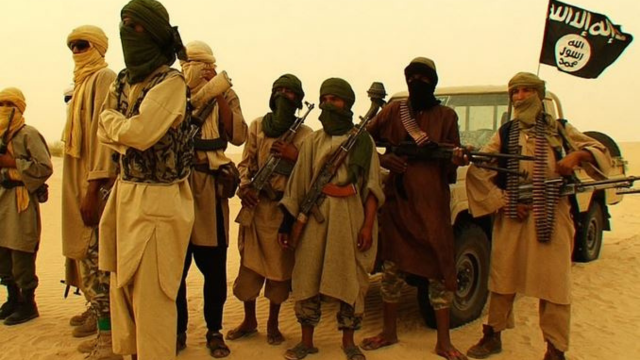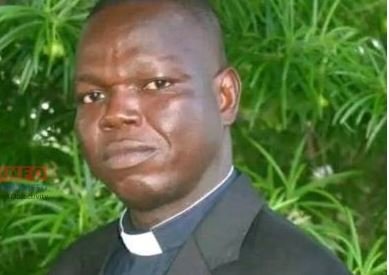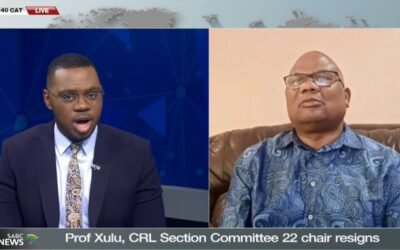Burkina Faso, Cameroon, and Chad continue to witness deadly violence by non-state actors and insufficient protection of religion by the governments.
by Massimo Introvigne

The report “Freedom of Religion or Belief in the Sahelian Countries of Burkina Faso, Cameroon, and Chad” from the United States Commission on International Religious Freedom (USCIRF) offers a sobering read that pairs global urgency with policy precision. It is a dossier of despair, chronicling how jihadist insurgencies, fragile governments, and international inertia have conspired to shred religious freedom across the Sahel.
“Religious freedom violations are widespread across the Sahel region of Africa due to the presence of violent insurgent groups, fragile and often military-led governments, and societal conflict” is the report’s opening salvo.
The report focuses on Burkina Faso, Cameroon, and Chad, where Islamist extremist groups, such as the Islamic State in the Sahel Province (ISSP), the Jama’at Ahl al-Sunna lid-Dawah wa’al-Jihad (JAS-Boko Haram), and Jama’at Nusrat al-Islam wal-Muslimin (JNIM), have weaponized religion to terrorize civilians. These groups don’t just target state institutions—they attack churches, mosques, and religious leaders, enforcing their own interpretations of Islamic law with brutal efficiency.
In Burkina Faso, for example, “ISSP claimed responsibility for a February 2024 attack on a Catholic church that killed at least 12 worshipers in Essakane. That same month, insurgents attacked a mosque in Natiaboani in the eastern part of the country, killing dozens during morning prayer. In January 2025, 200 insurgents attacked three villages in western Burkina Faso and killed 26 people, including at least six Christians. Bandits, reportedly masquerading as insurgents, also killed two catechists from the nearby Diocese of Dédougou while they were returning from religious training. In March 2025 in Sourou Province, JNIM assailants killed at least 100 Muslim Fulani villagers—reportedly accusing them of helping the Burkinabe military.”
In Cameroon, “In May 2025, JAS-Boko Haram reportedly abducted Garoua Archdiocese priest Father Valentin Mbaïbarem in the Far North region, although it eventually released him unharmed. In August, the group abducted approximately 50 passengers from a bus, with most being released upon ransom payments. In 2024, the same group killed over 700 people and severely disrupted Christian church activities, and its attacks left thousands of other Christians homeless.”

In Chad, “In 2025, JAS-Boko Haram, ISWAP, and violent Fulani herder groups continue to target religious communities; these groups often displace victims whom they do not outright kill after destroying their property. During one attack in October 2024, JAS-Boko Haram killed several Christian and Muslim civilians, along with 40 soldiers.”
The report doesn’t spare national governments either. It notes that state responses are often inadequate, inconsistent, or counterproductive. In some cases, military crackdowns have led to human rights abuses, further alienating local populations and inadvertently fueling extremist recruitment.
In Burkina Faso, in “the northern, eastern, and western parts of the country, the government often has a severely limited capacity to protect Christians, especially converts from Islam who face hostility if they discuss their faith with others and if so, may lose their inheritance rights. Authorities often prevent churches from purchasing land or acquiring permits. The government sometimes justifies these administrative obstacles as a way to protect Christian worshipers from insurgent violence or to defuse interfaith tension in areas with high Muslim populations.”
In Cameroon, although the “army at times provides some protection for Christians against Boko Haram fighters in certain border parishes, security forces involved in counterinsurgency efforts have, in previous years, reportedly targeted religious leaders for speaking out in protest of military violence against civilians.”
Chad imposes limitations on Islamic groups. Additionally, “state officials with the Ministry of Interior require places of worship, usually Christian churches, to obtain a six-month temporary authorization while they await recognition as legal entities, leaving them in a position of extreme liability to harassment and closure. Church founders of such unregistered churches risk imprisonment for up to one year as well as fines, making church operations much more difficult.”
The report recommends that the U.S. expand humanitarian aid to displaced religious minorities and integrate religious freedom into its broader Sahel strategy. Counterterrorism engagement should continue, but it needs a moral compass.

Massimo Introvigne (born June 14, 1955 in Rome) is an Italian sociologist of religions. He is the founder and managing director of the Center for Studies on New Religions (CESNUR), an international network of scholars who study new religious movements. Introvigne is the author of some 70 books and more than 100 articles in the field of sociology of religion. He was the main author of the Enciclopedia delle religioni in Italia (Encyclopedia of Religions in Italy). He is a member of the editorial board for the Interdisciplinary Journal of Research on Religion and of the executive board of University of California Press’ Nova Religio. From January 5 to December 31, 2011, he has served as the “Representative on combating racism, xenophobia and discrimination, with a special focus on discrimination against Christians and members of other religions” of the Organization for Security and Co-operation in Europe (OSCE). From 2012 to 2015 he served as chairperson of the Observatory of Religious Liberty, instituted by the Italian Ministry of Foreign Affairs in order to monitor problems of religious liberty on a worldwide scale.



